Mere Desh celebrates Budram Holass at youth competition
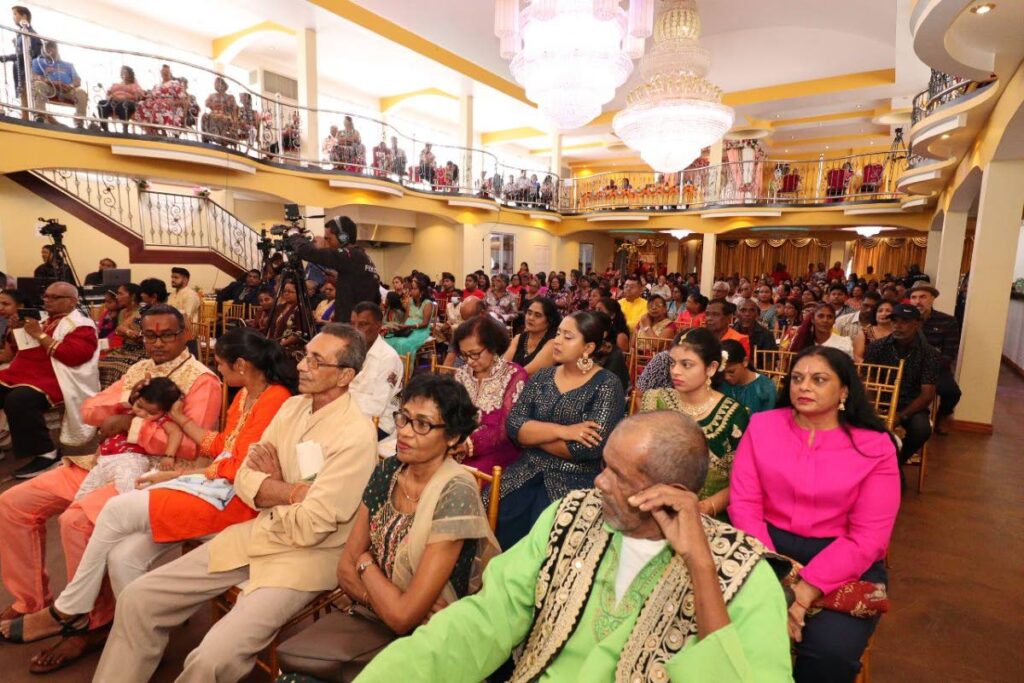
A large audience gathered to enjoy an evening of local classical singing as Mere Desh celebrated its 33rd anniversary. The event took place at Passage to Asia, Chaguanas on Indian Arrival Day and paid tribute to the Indian cultural singer Budram Holass.
The evening’s programme featured a local classical youth competition for participants under the age of 20. The talented young artistes mesmerised the crowd with their renditions of Budram Holass’ songs, leaving a lasting impression.
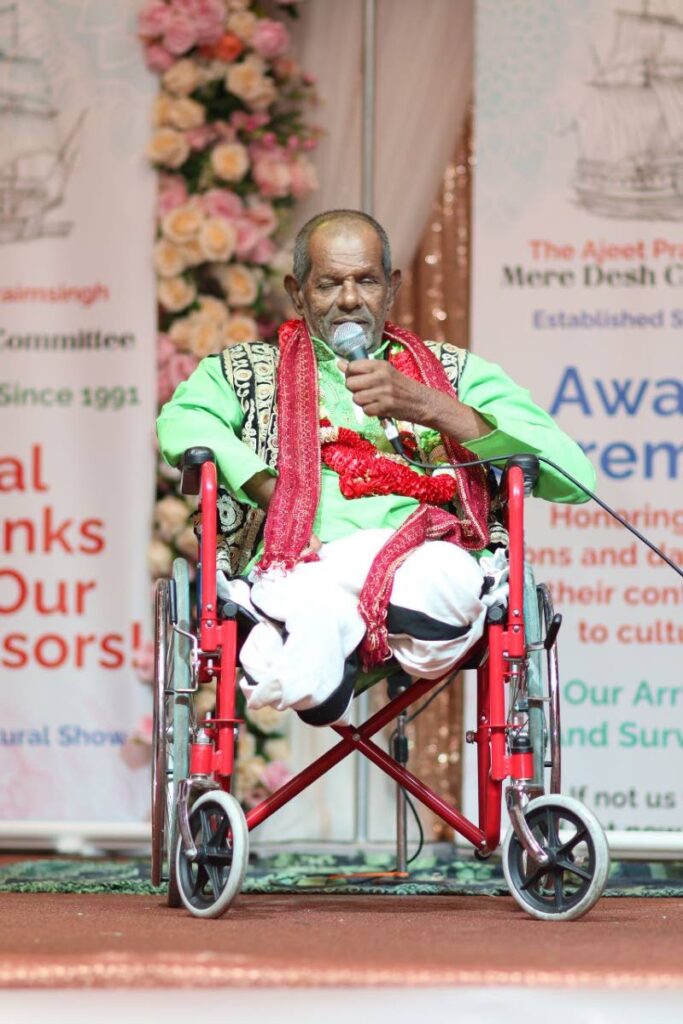
Following a captivating night of entertainment, the awards ceremony honoured several other individuals, and the eagerly awaited competition results were revealed. Taking the first place was Shivanand Basdeo, while 15-year-old Vishal Surujdeo secured second place with his powerful performance of Dhobiya Jal Bichay and Nadiya Ki Naaray. The sweet voice of 18-year-old Anjely Rajkumar earned her the third-place accolade.
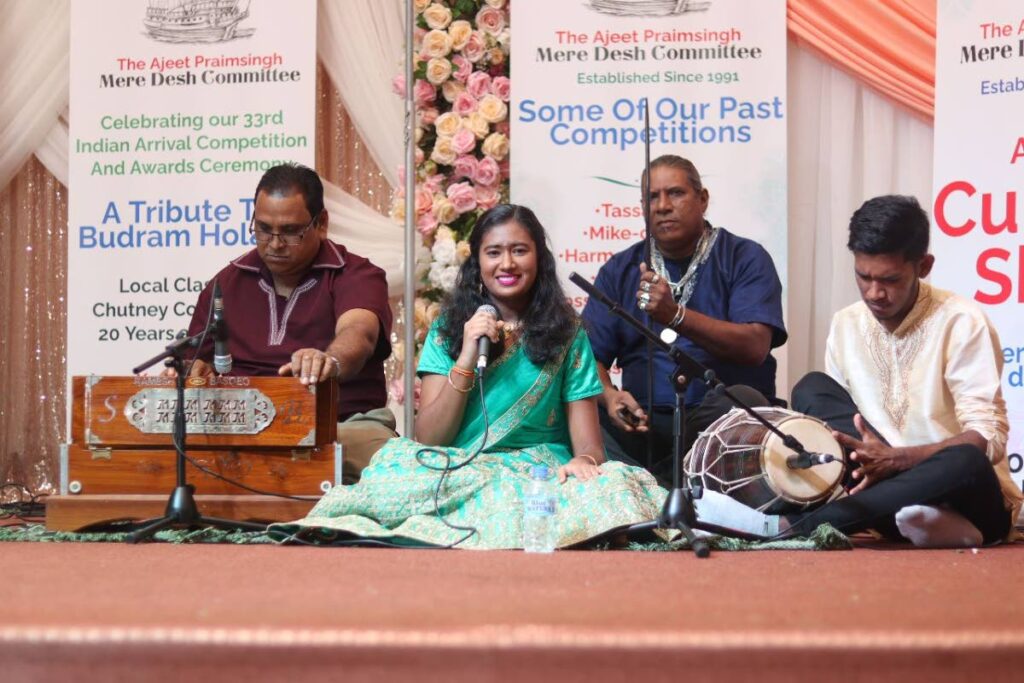
When asked about her thoughts on this year’s Mere Desh competition, Savitree Praimsingh, whose father Ajeet Praimsingh founded Mere Desh, expressed her admiration, saying, “I believe all the performers did an exceptional job this year. Right from their registration at the store, I could sense the fierce competition. The judges were amazed by their musical articulation and innovative presentations. In fact, the scores were incredibly close. Witnessing these children blossom in their talents gives me hope for the preservation of traditional music. Most of them have been part of the Mere Desh family since we shifted our focus to the youth. I am also pleased to see the dedication of their parents.”
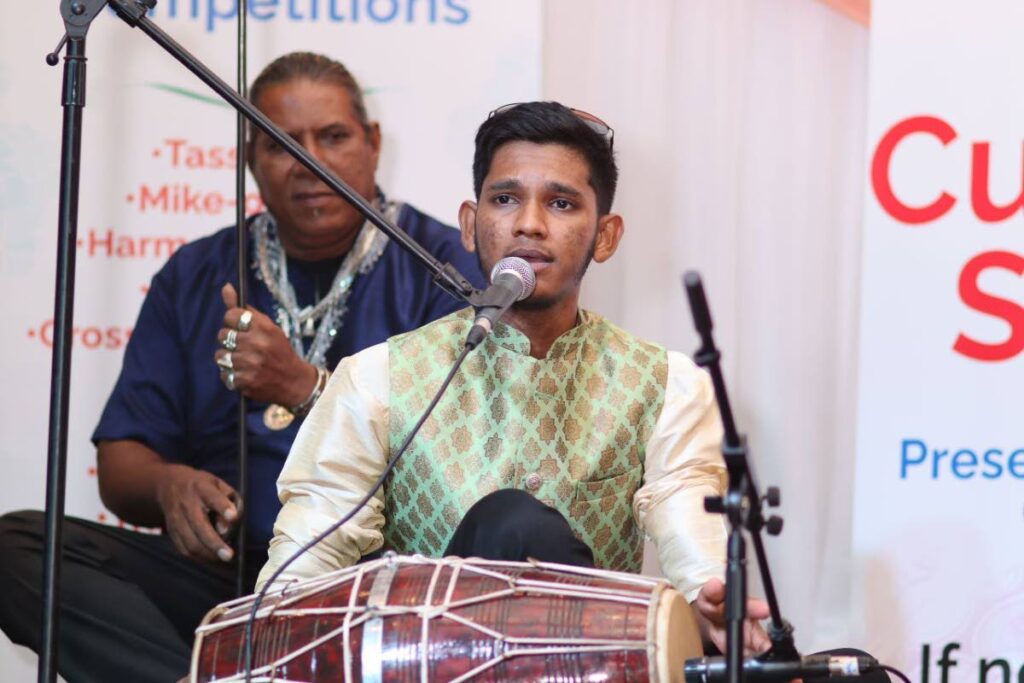
Speaking on the idea that classical music is dying, Praimsingh said, “Yes definitely. I think that if people understood the important link that classical singing has in our modern-day music then they will appreciate it more. Classical music evolved into traditional chutney music in the 1950’s. Elements of traditional chutney and calypso then birthed soca and then soca was able to lend back to chutney in the form of chutney soca. But there is something timeless about traditional chutney music in that it can work and still seem fitting in any modern-day event. And this I think is because traditional chutney music has the base elements. Everything in a true traditional chutney song is organic, that is the instruments and the language. You don’t have to love classical singing to appreciate it. But once you understand its role in our musical evolution, you would realise that it really is worth reviving.”
Praimsingh had a message for youths, “Like my dad would say, “if not us who? And if not now, when?” I think these are quite powerful words that he lived by. And this was his driving force in all of the work he was able to do with culture over the years. Where there was no space for culture, he was able to create it. And I think it is important to use your platform for the greater good and to promote all things good.”
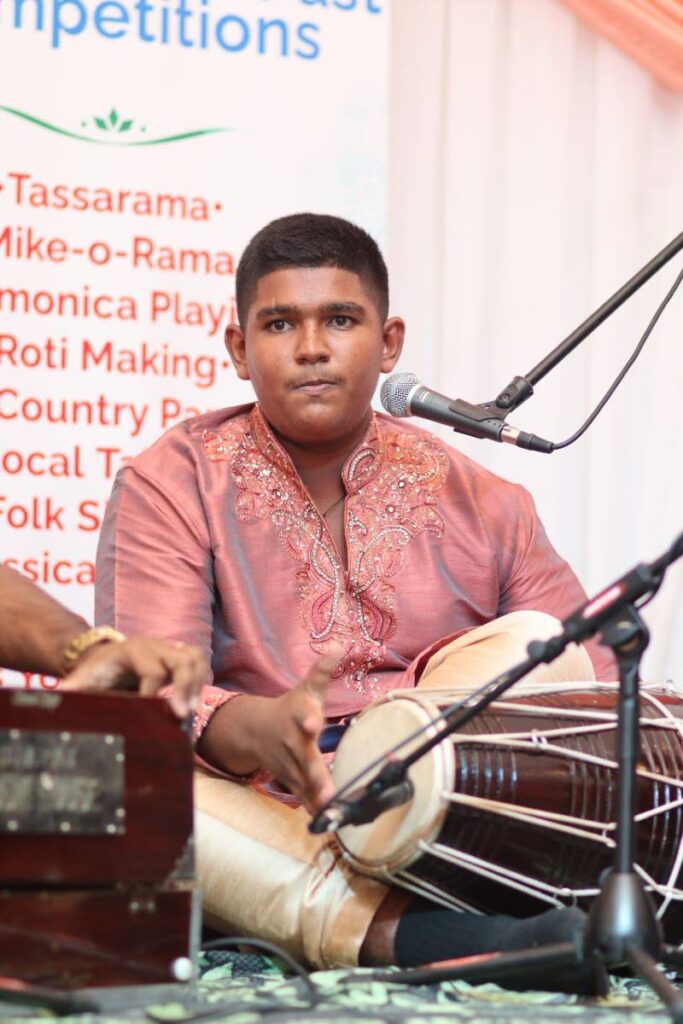
She also emphasised the need for comprehensive research and documentation on various aspects of the Indo-Trinidadian experience. “I also think that much research and documentation is needed in various aspects of the Indo-Trinidadian experience. We live in a world of technology where information is available at the click of a button. So much of our rich heritage is left undocumented. It is about time that we start documenting and having this kind of material readily available. Let us share our stories with the rest of the world, they are eager to know about us.”

Comments
"Mere Desh celebrates Budram Holass at youth competition"